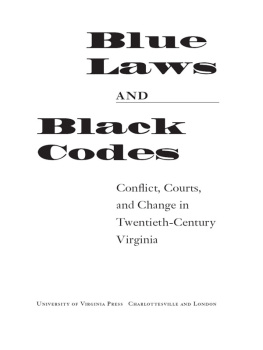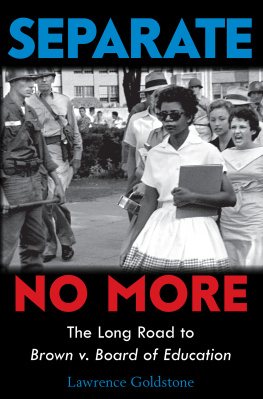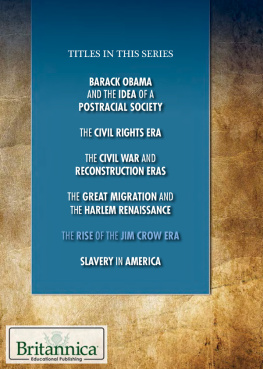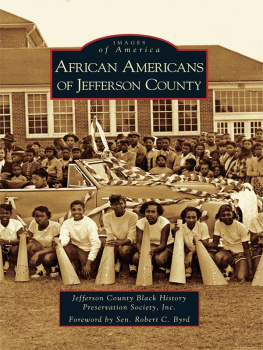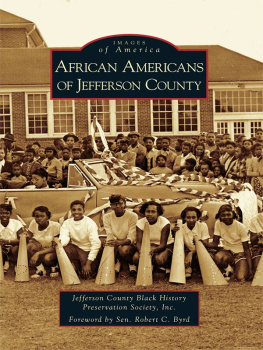This book is the result of a decade of work involving many people. First, I would like to thank the many archivists and librarians who have assisted me over the years. The Manuscript Division at the Library of Congress deserves special thanks for helping me navigate the massive Papers of the NAACP collection, especially Jeff Flannery, Adrienne Cannon, and the staff of the manuscript reading room. Id also like to thank the staff at the Library of Congress Law Library. The staff at the Virginia Historical Society was extremely helpful during my visits, especially Frances Pollard, Toni Carter, and Gregory Stoner. At the same institution, I would like to thank Graham Dozier, Lauranett Lee, Bill Obrochta, and Lee Shepard for supporting my research and related projects. Brent Tarter and Gregg Kimball at the Library of Virginia deserve special thanks for help with research questions and for providing information on related aspects of Virginia history. Teresa Roane, formerly of the Valentine Richmond History Center (and now of the Museum of the Confederacy) assisted my search of the Valentines tremendous collection of historic photographs, and regularly checked in on this project as it moved forward, which I always appreciated. Research trips to the University of Virginia were always a pleasure, due largely to the staff at Alderman Library and the Small Special Collections Library. The same holds true for the Special Collections staff at Virginia State University, where Im especially grateful to Lucious Edwards and Francine Archer. Charles Bethea, former director of the Black History Museum and Cultural Center of Virginia, deserves special thanks for introducing me to research materials as well as to many individuals with firsthand knowledge of school desegregation in Virginia. At the University of Richmond, Jim Gwin was an indefatigable help as well as a cheerful and good-humored colleague. Jim obtained document collections related to my research and teaching, which aided in the development of this manuscript, as did Hope Yelich, formerly of Swem Library at the College of William & Mary.
I spent many years in school at William & Mary, and I would not have been able to write this book without the knowledge and support I found there. Id like to thank professors Ed Crapol and Jim Whittenburg; both taught me as an undergraduate and later mentored me as a graduate student. They have shaped my outlook on history and education more than they know. Professor Richard Sherman provided advice and assistance when I decided to pursue graduate school in history, as did John Selby many years later. Carol Sheriff, former director of the graduate program in history, always provided helpful feedback on my work and my career. Civil rights expert Dave Douglas, dean of the William & Mary Law School, deserves special mention for supporting and encouraging this project from the beginning. And finally, Id like to especially thank my doctoral advisor, Melvin Patrick Ely, for agreeing to oversee this project, and for the advice, knowledge, and editing skills that permeate the pages that follow. Mels guidance and support have been irreplaceable.
Financial assistance helped me conduct research for this book. I thank the John Hope Franklin Research Center at Duke University for a Special Collections research grant, which allowed me to look through a number of relevant manuscript collections as well as an extensive collection of NAACP Papers microfilm. A Mellon Fellowship at the Virginia Historical Society helped me to clarify some of the larger questions related to this project, in addition to providing me the opportunity to review a number of manuscript collections related to school desegregation in Virginia. Financial support from the College of William & Mary History Department, the Office of the Dean of Arts and Sciences, and the Graduate Student Association made possible countless research trips to the Library of Congress, and funded presentations at a number of history conferences. The staff of the Virginia Foundation for the Humanities and Public Policy especially David Bearinger and Rob Vaughan deserve a special thank you. Over the years, the VFH has provided funding for a number of research projects related to school desegregation in Virginia that I have been involved in. Their commitment to telling Virginia history in an inclusive manner is unrivaled. Finally, Id like to thank my current employer, Virginia Commonwealth University, especially John Kneebone and Rob Tombes, for funding to conduct research and to include photographs in this book.
Ive been fortunate to teach at a number of great institutions with wonderful colleagues during the writing of this book. I began my college teaching career at Richard Bland College in Petersburg, Virginia, which was like working with family. I am especially grateful to former president Jim McNeer, whose support and advice have been invaluable. At the University of Richmond, where I taught part-time while writing much of this book, Id like to thank the entire History Department. Hugh West, Bob Kenzer, and Debbie Govoruhk deserve special thanks. At Virginia Commonwealth University, Id like to thank former deans Bob Holsworth, Fred Hawkridge, and Jim Coleman for their support. The Department of African American Studies was my initial home at VCU, and Id like to thank its faculty and staff, most especially the late Njeri Jackson. In VCU Special Collections, Ray Bonis has been a tremendous help as well as a great colleague. Rays music compilations have fueled more than a few late night writing sessions. Also in VCU Libraries, John Ulmschneider, Jodi Koste, and Wesley Chenault deserve a special thanks. In the VCU History Department, where I currently teach, Id like to thank all of my colleagues, the department staff, and years of terrific students for making VCU a truly great place to work.
Many friends, colleagues, students, and scholars have read portions, or all, of this work, or have supported the project in other ways. A number of them are cited in the pages that follow. Far from home, Id like to thank my graduate advisor at the University of Montana, Mike Mayer, who has always served as a sounding board for my research and career ideas. Here in Virginia, Jim Hershman freely gave his time and knowledge while I completed my research and wrote the first iterations of this book. I cant thank him enough for encouraging me and for his assistance over the years. Id also like to thank Jim Sweeney for many valuable research tips, and for being a model of teaching and writing about Virginias civil rights era. Jim helped create the Desegregation of Virginia Education (DOVE) project, which seeks to locate and preserve primary source materials related to school desegregation in Virginia, and which seeks to publicize this history and its importance. I now serve as cochair of DOVE, and Id like to thank Jim and Sonia Yaco for leading the way. I would also like to thank my cochair, Ann Jimerson, as well as DOVEs regional chairs and many supporters. Peter Wallensteins many publications on the civil rights era in Virginia have strongly informed my own writing, and his indefatigable energy has brought greater interest to this era among countless others. Charles Ford and Jeffrey Littlejohns scholarship on Norfolk has also shaped my work, and I am excited to read their future work on school desegregation and civil rights in Virginia. A special thanks goes to Larissa Smith Fergeson, who has been a friend and supporter from the earliest days of this project, as well as a tremendous Virginia NAACP scholar. At the University of Richmond, Id like to thank Melissa Ooten, a fellow graduate student and later fellow traveler on a series of highly successful civil rights bus tours. Id like to do that again. Chuck Bolton met with us on several of those bus tours, served as coeditor of my first book, read this entire book manuscript, and has always been an inspiration for his productivity, leadership, and humility. I cant thank him enough. Chuck also served as dissertation advisor to one of my former graduate students, Brian Lee, whose wherewithal and research skills have impressed us all. Brian graciously read most of this manuscript and has been a good partner on a number of related projects. Another Brian, Brian Grogan, provided feedback on this manuscript and is a coeditor on another book project. I think he deserves an honorary doctorate for the effort. Alyce Miller also graciously read the entire manuscript and still agreed to partner on a new research project. Her feedback helped me clarify a number of points for nonspecialists, for which I am very grateful. Another tremendous partner, for many years now, has been Jody L. Allen, who deserves a special thank you. Her research and teaching have strongly influenced my own, and her knowledge of African American and civil rights history in Virginia will greatly benefit future students and scholars. Finally, at VCU, I have subjected a number of undergraduate students to my work on civil rights and school desegregation, and they have been surprisingly receptive. Many have provided feedback, helpful ideas, and potential sources. Of the many, I would especially like to thank Arman Chowdhury, Manon Loustaunau, and Luke Murray.


